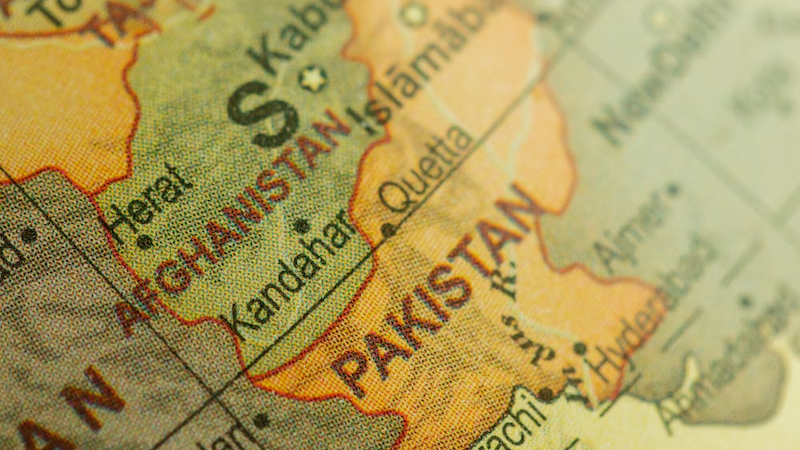Listen to the article
In a significant shift of diplomatic tactics, Pakistan and Afghanistan’s traditional border disputes have migrated to a new frontier: the digital domain. As both nations attempt to navigate their fragile relationship through diplomatic channels, an escalating information war is undermining progress toward meaningful cooperation.
Recent weeks have witnessed a coordinated online campaign from Afghanistan, with activity traced to state apparatuses and pro-Taliban media networks. Intelligence analysts note the involvement of Afghanistan’s General Directorate of Intelligence (GDI) behind seemingly synchronized social media operations that activate whenever Pakistan raises security concerns.
The pattern has become predictable: when Pakistan urges Kabul to make written commitments regarding the expulsion of militant groups like Tehrik-i-Taliban Pakistan (TTP) and Balochistan Liberation Army (BLA) from Afghan territory, a wave of digital content emerges claiming that Islamabad is “sabotaging peace” and “shirking responsibility.”
“What we’re seeing is a sophisticated attempt to control the narrative rather than address the underlying security issues,” notes a regional security expert who requested anonymity. “The timing of these campaigns is too precise to be coincidental.”
This digital offensive includes orchestrated hashtags, manipulated videos, and coordinated messaging designed to undermine Pakistan’s diplomatic position. The strategy appears aimed at diverting attention from the documented presence of anti-Pakistan terrorist organizations operating with relative freedom inside Afghanistan.
The digital battlefield represents a fundamental evolution in regional diplomacy, where perception management has become as crucial as traditional negotiation. A prematurely leaked document or viral social media campaign can potentially derail months of careful diplomatic work. For Afghanistan, this approach risks undermining its credibility as a serious negotiating partner.
Pakistan has maintained a notably restrained posture amid the digital provocations, consistently emphasizing its core demand: verifiable security assurances that militant safe havens along the border will be dismantled. Rather than engaging with this fundamental concern, Kabul’s digital operatives have reframed Pakistan’s security requirements as aggressive overreach.
“The Afghanistan-Pakistan relationship has always been complex, but the introduction of social media as a diplomatic tool has fundamentally changed the dynamics,” says Dr. Aisha Saeed, an international relations professor specializing in South Asian security. “What once happened behind closed doors is now playing out in public, often with distorted narratives.”
The ongoing cyber campaigns reflect a calculated strategy to influence both domestic audiences and international observers. Each viral hashtag serves a purpose: deflecting responsibility, distorting reality, and redirecting blame. The result is a diplomatic process constantly derailed by manufactured online outrage, leaving little space for substantive progress.
Perhaps most troubling is the contradiction between Afghanistan’s official diplomatic rhetoric of partnership and trust, and the antagonistic messaging propagated through its allied digital networks. This disconnect between public diplomacy and private propaganda highlights the challenges facing genuine regional cooperation.
The upcoming Istanbul dialogue presents an opportunity to rise above digital distractions and focus on tangible commitments. Meaningful progress will require written agreements, shared accountability, and political determination to address the extremist networks that benefit from regional instability.
In this evolving diplomatic landscape, success will ultimately belong to the party that prioritizes verifiable action over virtual posturing. While the methods of engagement may have shifted to screens and servers, the stakes remain unchanged – the peace, stability, and future prosperity of a region that has endured decades of conflict.
Regional analysts stress that every minute devoted to digital propaganda represents a victory for those who prefer hostility to compromise. As one senior diplomat involved in previous negotiations noted, “Peace requires honesty and direct engagement. No amount of clever hashtags can substitute for the hard work of addressing legitimate security concerns.”
Fact Checker
Verify the accuracy of this article using The Disinformation Commission analysis and real-time sources.




8 Comments
This is a troubling example of how digital tools can be weaponized for political gain. Both sides need to act in good faith and prioritize facts over partisan narratives if they hope to find meaningful solutions.
Absolutely. Relying on credible sources and objective analysis is crucial when dealing with sensitive regional conflicts. Disinformation campaigns only make the path to resolution more difficult.
While I’m not surprised to see digital tactics being used in this regional dispute, it’s concerning to see the scale and coordination of these disinformation campaigns. Ultimately, the losers are the citizens who deserve an honest public dialogue.
Disinformation is a serious threat to constructive public discourse. It’s concerning to see regional tensions fueling online propaganda campaigns that distort the facts. A more transparent and fact-based dialogue is needed to make progress on complex security issues.
I agree, disinformation erodes trust and undermines efforts to address real problems. Diplomatic channels should be the focus, not online information wars.
It’s disappointing to see this type of tactic undermining efforts at regional cooperation. Mutual trust and transparency should be the foundation for addressing complex security challenges, not online propaganda battles.
This situation highlights the need for greater digital literacy and media scrutiny. Citizens deserve access to reliable information to form their own views, not be bombarded with coordinated disinformation.
Agreed. Strengthening fact-checking and digital media standards is crucial to combating the spread of misleading narratives that obstruct progress on important issues.